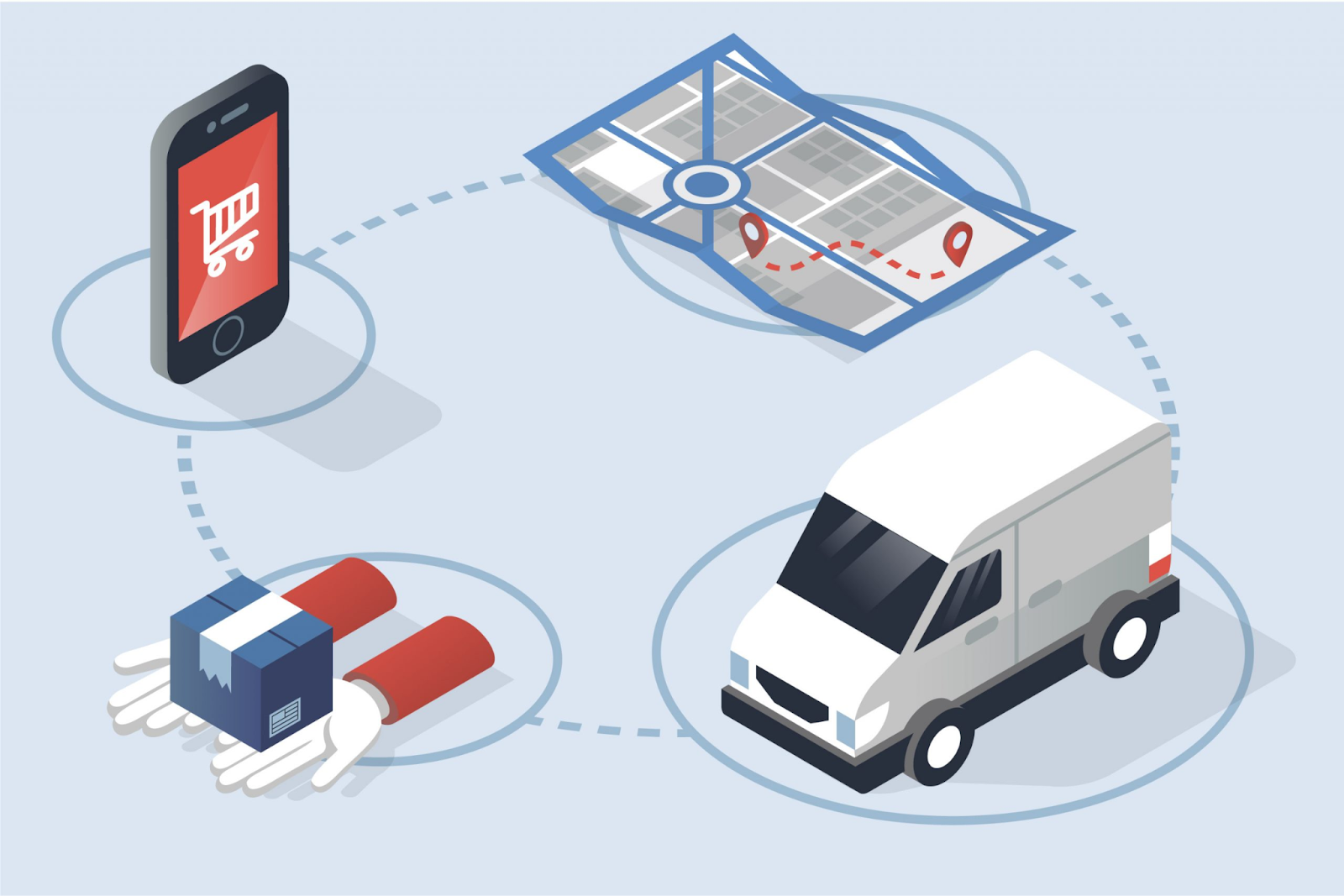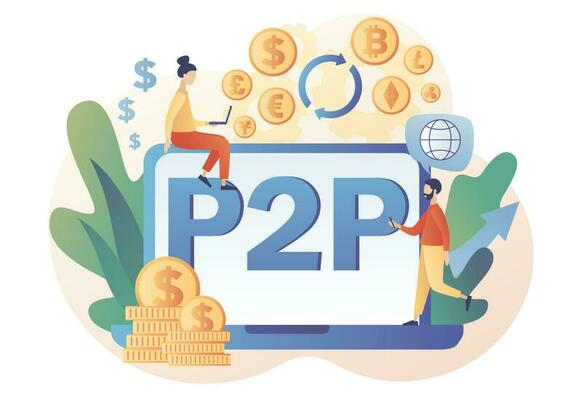Believe it or not, we’re living in a world where 86% of consumers are willing to pay more for a faster delivery service.
And On-Demand Logistics in Malaysia and around the world cater to this very need.
Craving sushi tonight? Foodpanda has you covered.
Forgot a birthday gift? Send flowers within hours through Happy Bunch.
From the moment you click “buy” to the instant a package lands at your doorstep, on-demand logistics is changing the timeline and efficiency of deliveries for good.
Whether you’re a startup entrepreneur in bustling Kuala Lumpur or a seasoned enterprise in the expansive Malaysian market, this blog is for you.
So, buckle up as we dive into how the rise of on-demand logistics services is changing the game for businesses one delivery at a time.
What Is On-Demand Logistics?
On-Demand Logistics in Malaysia is a strategic way for online shops to reach more people all over the place and make sure customers get their orders super quickly after they place an order.
This handy service is especially useful for stores that sell things in lots of different ways—not just on their own website but also through other online platforms. It helps keep everything running smoothly, so orders go from being placed to being packed and shipped in no time.
For On-Demand Delivery to be successful, it needs a big network where goods can be stored and sent out quickly. This network must be flexible so it can handle lots of orders at once, even if they’re all different.
Also, to make sure orders go out fast and reach the right person without any mix-ups, there needs to be some super-smart technology in place. This includes things like integrated robotics that help in warehouses and software that tracks every order until it’s delivered.
Having all these tools and systems in place helps make sure everyone who orders something gets it quickly and without any trouble. It’s not just about sending things fast; it’s also about making customers happy because they can rely on getting their stuff on time. This is really important because it helps businesses grow by making sure shoppers want to come back and buy more.
What Drives The On-Demand Space?
The rapid expansion of e-commerce stands as the primary catalyst for the growth of the On-Demand Delivery industry. Accelerated by the digital revolution and socio-economic changes, especially during the COVID-19 pandemic, almost every product and service can now be purchased online.
Customers enjoy quick and convenient ways to meet their buying needs from virtually anywhere. They connect with vendors through digital platforms such as websites or apps.
These platforms streamline the entire shopping journey—from browsing items in an e-commerce marketplace, placing orders, making payments, to communicating with delivery staff, tracking the order’s progress, and even gathering customer feedback.
Overall, consumer preferences are increasingly leaning towards experiences that are swift, straightforward, and satisfying. This shift in behavior has been evolving globally since the internet became widespread in the late 1990s, significantly influencing shopping habits.

The History and Impact of logistics
Beginning
Long before the First World War, the British Army developed a way to manage supplies by building infrastructure like roads, railroads, ports, and airfields. They also set up supply stores and vehicles to move weapons and troops. This early form of logistics helped them prepare and respond more efficiently during wartime.
Expansion in the United States
In the United States, the focus was initially on distributing agricultural products across the continent in the late 19th century. This led to the development of a system for distributing industrial goods. Over time, this evolved into a sophisticated management system, and by 1964, the official study of Logistics Management began.
Impact on Commerce and Industry
For businesses in Malaysia and beyond, logistics plays a crucial role in cutting costs and boosting profits. It’s also key in maintaining competitiveness. Efficient logistics enhance customer service, strengthen relationships with internal and external customers, and lay a solid foundation for business growth aided by rapid advancements in information technology.
Knowledge Integration
Effective logistics management requires integrating various fields of knowledge:
- Engineering Science: Focuses on industrial engineering to optimize processes.
- Business Management: Deals with international transportation, considering laws, taxation, freight, national logistics strategies, and international trades.
- Information Management: Involves studying software and hardware to create services that support and enhance logistics activities, ensuring they are agile and responsive.
Each of these areas combines to create effective strategies for shipping goods to different countries and managing logistics with greater efficiency.
Evolving Use Cases of On-Demand Logistics Services
1. Medicine Delivery and Healthcare
The demand for On-Demand Logistics in the healthcare sector has surged since the pandemic began. Hospitals and clinics now urgently need logistics solutions like CEVA Logistics that are not only flexible but also exceptionally quick to respond to the dynamic needs of patients. For instance, the prompt arrival of an ambulance can significantly enhance patient survival rates and recovery outcomes.
Similarly, the swift delivery of medications and essential medical supplies is crucial for patient care, improving overall satisfaction and trust in healthcare services. Moreover, as healthcare costs climb and the complexity of medical supply chains increases, the importance of efficient On-Demand Delivery systems becomes more pronounced, playing a critical role in managing emergencies and routine care alike.
2. Retail Industry
The retail sector is experiencing considerable pressure to fulfill orders accurately and quickly while simultaneously managing in-store operations. This dual demand has driven many retailers to form partnerships with On-Demand Logistics providers. These partnerships are vital, enabling retailers to offer a range of expedited shipping options, such as same-day and last-mile delivery.
This capability is essential not only for customer satisfaction but also for competing in a market where speed can be a significant differentiator. Furthermore, On-Demand Logistics services like Blue Dart Express help retailers adapt to fluctuating demand, especially during peak seasons or promotional periods, by providing additional logistics resources on-demand. This flexibility ensures that retailers can scale operations up or down based on real-time demand without the burdensome costs associated with maintaining a large-scale delivery infrastructure.
These evolving use cases highlight the growing reliance on On-Demand Logistics to meet critical, time-sensitive needs across various sectors, underscoring its value in improving service delivery and operational efficiency.
3. Food and Beverage Industry
The food and beverage industry has seen a dramatic change with the integration of On-Demand Logistics services in Malaysia. Restaurants, grocery stores, and food manufacturers are increasingly relying on companies like GrabFood to deliver meals and ingredients directly to consumers’ doors.
This trend has been accelerated by changes in consumer behavior, where convenience is highly prized. On-demand services ensure that perishable goods are transported efficiently, reducing waste and maintaining quality. Additionally, these logistics solutions help businesses manage the ebb and flow of demand, particularly during holidays and special events.
4. Construction and Heavy Industry
In the construction and heavy industry sectors, project timelines and the efficient management of supplies are critical to success. On-Demand Logistics providers like Lalamove are being used to transport materials quickly as needed, helping to avoid project delays and reduce holding costs. These services provide a flexible approach to managing large, unwieldy items that are often challenging to store. By using on-demand delivery, construction firms can streamline their operations, enhance productivity, and better manage project timelines, making it easier to respond to unforeseen demands or changes in project scopes.
5. Fashion and Apparel
The fashion industry, particularly fast fashion, benefits immensely from On-Demand Logistics. Companies such as ZALORA utilize these services to offer rapid turnaround times from order to delivery, crucial for an industry where trends can change in a matter of weeks.
On-demand logistics enable fashion retailers to reduce inventory levels, minimize overproduction, and ensure that merchandise is delivered to stores and consumers with exceptional speed.
Final Verdict
As we look ahead, the future of On-Demand Logistics presents a transformative opportunity for business owners in Malaysia and beyond. By integrating these services, businesses can streamline their logistics operations, ensuring that products are delivered swiftly and efficiently.
This efficiency enhances customer satisfaction by reducing wait times and also optimizes inventory management, minimizing overhead costs. Moreover, the flexibility offered by on-demand logistics allows businesses to scale operations seamlessly during peak periods.
What are your thoughts on the opportunities and rapid expansion in the on-demand logistics space? Care to share your 2 cents? Tell us in the comments.



